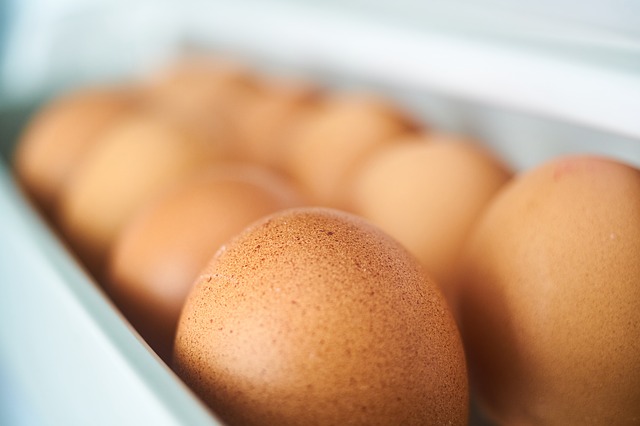
Eggs are considered special because of the several health benefits they provide. They are a rich source of protein, vitamins, and minerals. They are also one of the few complete protein foods, those than contain a complete count of the amino acids. Eggs are also inexpensive. This makes them a part of the daily diet for the most of us, especially during breakfast. But despite this, there are misconceptions about eggs that many of us still believe. In this article, we’ll address the most common myths about eggs that you need to know.
Let’s start.
THERE IS NO NUTRITIONAL DIFFERENCE BETWEEN BROWN AND WHITE EGGS
Aesthetically, brown eggs seem better. But that just all there is to them. Some people actually believe that brown eggs are better than white eggs because they look natural and more nutritious.
Here is the truth.
What dictates the color of the eggs is the breed of the hen that lay them. Brown-feathered hens lay brown eggs, whereas white-feathered hens lay white eggs. But if truth be told: there is no real difference between brown and white eggs, nutritionally.
Perhaps what drive people to this belief is the price difference. Sure, brown eggs cost more than white eggs. But this is because the chickens that lay brown eggs have a larger body size than chickens that lay white eggs. For this reason, they consume more feed, increasing the price tag of the egg.
Another reason for the higher price of brown eggs is that white hens tend to produce more eggs.
In the end, the color of the egg really does not matter. This article discusses this topic further.
THE EGG TRAY OF THE REFRIGERATOR DOOR IS NOT AN IDEAL PLACE FOR STORING EGGS

Gone are the old days when refrigerators have an egg tray in the door. Modern models may have an egg tray still, but not in the door— on a shelf. And that is good news. If your refrigerator is an old model, or has an egg tray by the door, and you are using them, it is time for a change.
Frequent opening and closing of the door may be stressful for the food items, including eggs in the built-in tray by the door.
Every time the door is opened, a blast of hot air is introduced and the eggs are shaken, which speeds up the thinning of the egg white. If you want to store eggs in the tray, place them first in the egg carton. Doing so protects the eggs from temperature drop and keeps them fresh. This also prevents the eggs from absorbing odor from other foods in the refrigerator.
The most ideal way of chilling and storing eggs is in an area where the temperature is constant. The Food and Drug Administration (FDA) suggests to store eggs at a temperature of 40 °F (4.4 °C) or below. You would want the eggs in the middle shelf, toward the back in an airtight container.
You might also like: Shelf Life Of Common Refrigerated Foods
THERE IS NO TASTE DIFFERENCE BETWEEN ORGANIC AND REGULAR EGGS
Several people in one popular online forum have asked why organic eggs taste better than regular eggs. Actually, the flavor difference between organic and regular eggs are subtle. But there is a significant difference between the two in nutrition.
Organic eggs are produced by hens, whose living conditions are much different than indoor-farmed hens. They have access to outdoor areas and are able to feed on organic feed or pasture. In order to be labelled organic, the chicken must also be free from antibiotic, added growth hormones, genetic engineering, animal cloning, avian byproducts and other prohibited feed ingredients.
Organic farming is equivalent to healthier lives for chicken. And the result is more nutritious eggs. Organic eggs contain twice the amount of omega-3 and vitamin E than non-organic eggs. Plus, they contain about 25% less saturated fat. Saturated fats raise the bad cholesterol levels in the blood, which increases the risk of developing heart disease.
Free-range chickens also have access to outdoors; some spend more time indoors. The difference is that free-range chickens are maybe given antibiotics, or other drug, similar to conventional farming. When it comes to nutrition, values vary. But generally, free-range eggs contain the same amount of nutrients as those of organic eggs.
THERE WILL ALWAYS BE RISK IN EATING RAW EGGS
Adding raw eggs in smoothies or shakes is maybe the quickest way to increase their protein content. But unlike what some people believe, eating raw eggs is never without the potential risk of food poisoning. Meats such as turkey, beef, chicken, pork, and eggs are commonly associated with Salmonellosis. Salmonellosis is one type of food poisoning caused by the salmonella bacterium. This type of food poisoning is very common that in the United States alone, it is estimated that about 1.35 million cases occur yearly. If an individual is infected with Salmonellosis, he/she may experience symptoms such as cramping, vomiting, diarrhea, an upset stomach, and fever.
You might also like: Is It Really Safe To Eat Raw Eggs?
Salmonella can be present on the shell or inside of the egg. But you cannot just tell if a raw egg is infected with salmonella by visual inspection. So it is advisable to thoroughly cook the eggs to kill salmonella that may be present, instead of consuming them raw.
Or better yet, purchase eggs that have been pasteurized. Pasteurized eggs come in two forms: liquid egg and pasteurized in the shell. These products have been treated to a temperature high enough to eliminate any bacteria. According to the US Department of Agriculture, pasteurized eggs are safe to consume without the need for cooking.
WASHING RAW EGGS IS NOT ADVISABLE
Do you wash the eggs before storing or using? If the eggs are not dirty or soiled, it is better to avoid cleaning or washing them.
Salmonella can be found in the gut and poop of chickens. The bacteria can then be transferred from the poop to the surface of the egg shell. And since the egg shell is porous, the bacteria can find their way to the inside of the egg. So if not necessary, do not clean the eggs. Washing makes the shell more porous, only helping the bacteria to enter the inside of the egg more easily.
You might also like: Food Safety At The Grocery Store
To prevent the likelihood of washing, do not purchase dirty and soiled eggs. Likewise, do not buy cracked eggs, even if they are available at a lower price. The entry points for bacteria are already obvious.
Other references:
S. Farrimond (2017). The Science of Cooking: Every Question Answered to Perfect your Cooking. DK Publishing.
Dole Food Company, The Mayo Clinic , University of California (2002). Encyclopedia of Foods: A Guide to Healthy Nutrition. Academic Press.
V. Vaclavik, E. Christian (2014) . Essentials of Food Science (4th edition). Springer Publishing.


